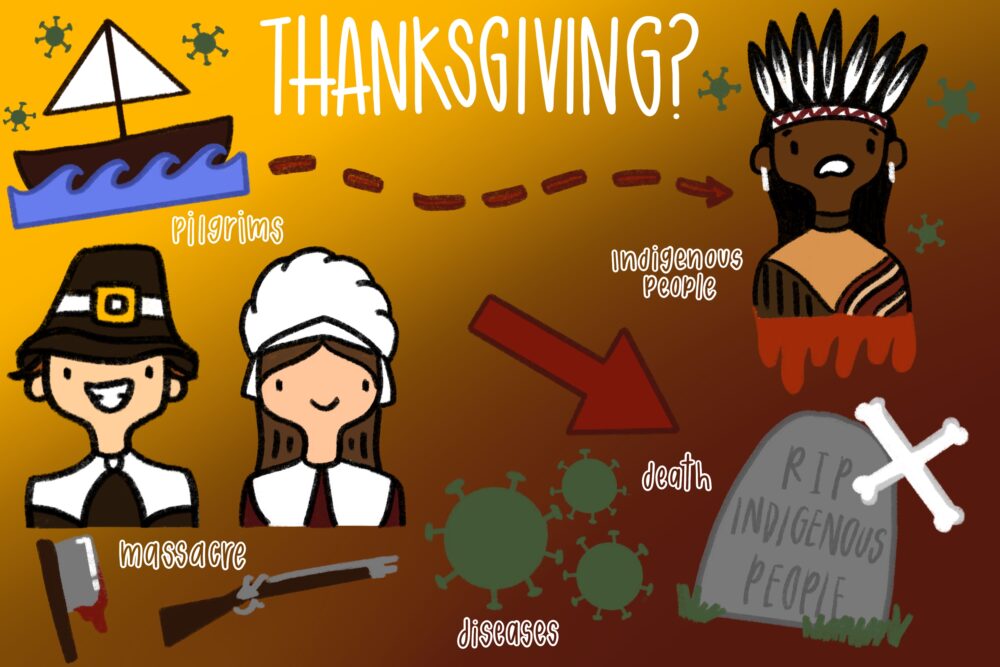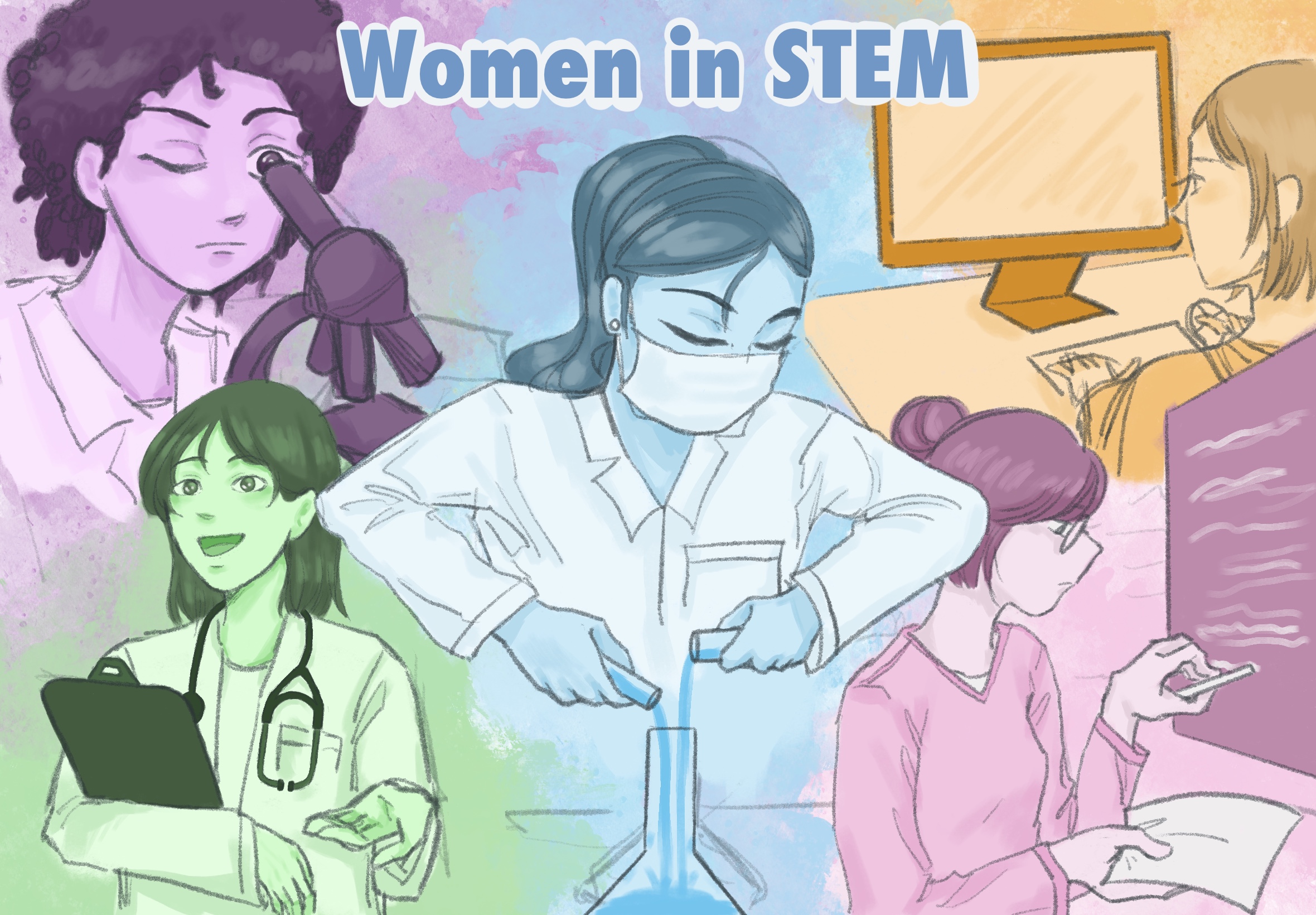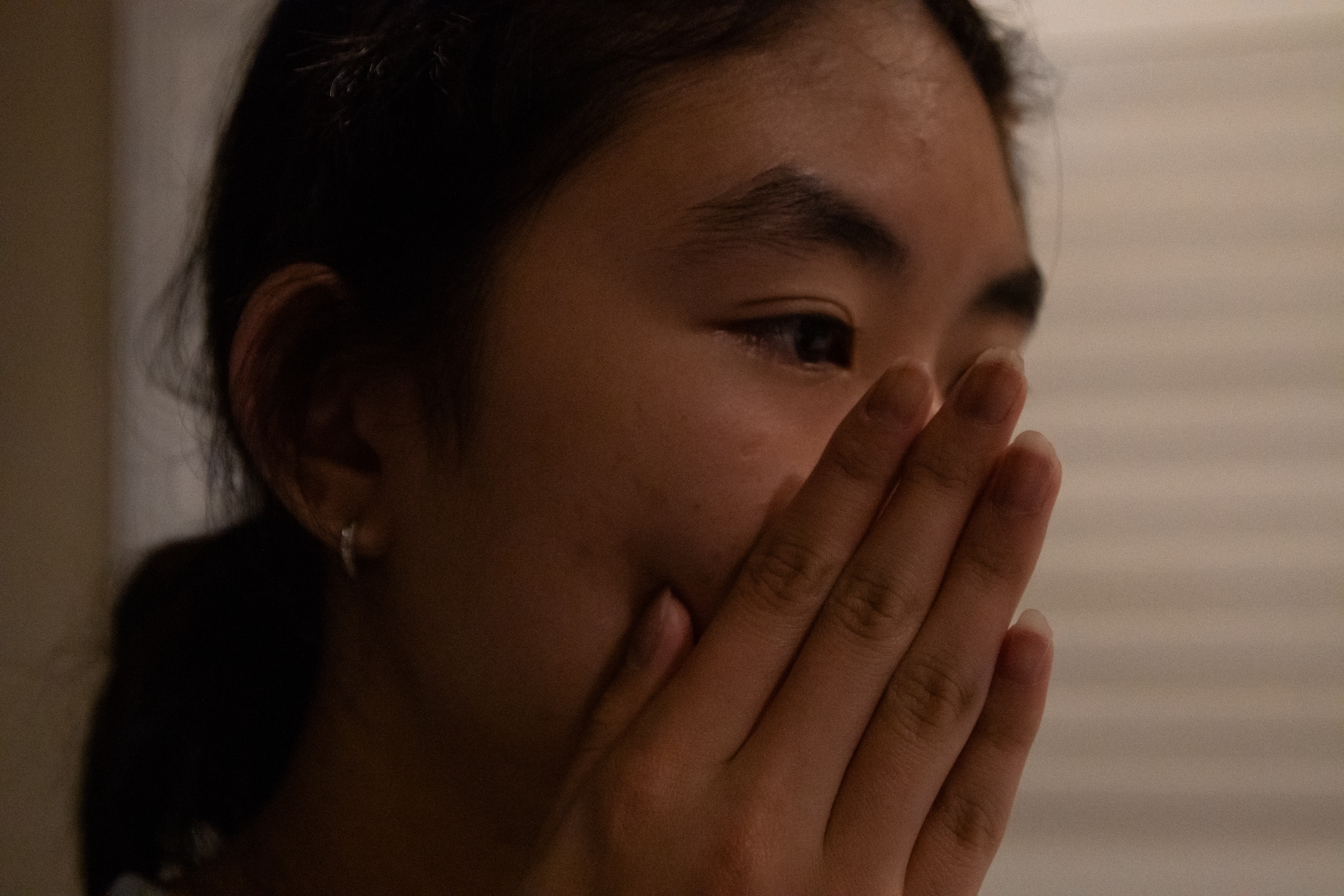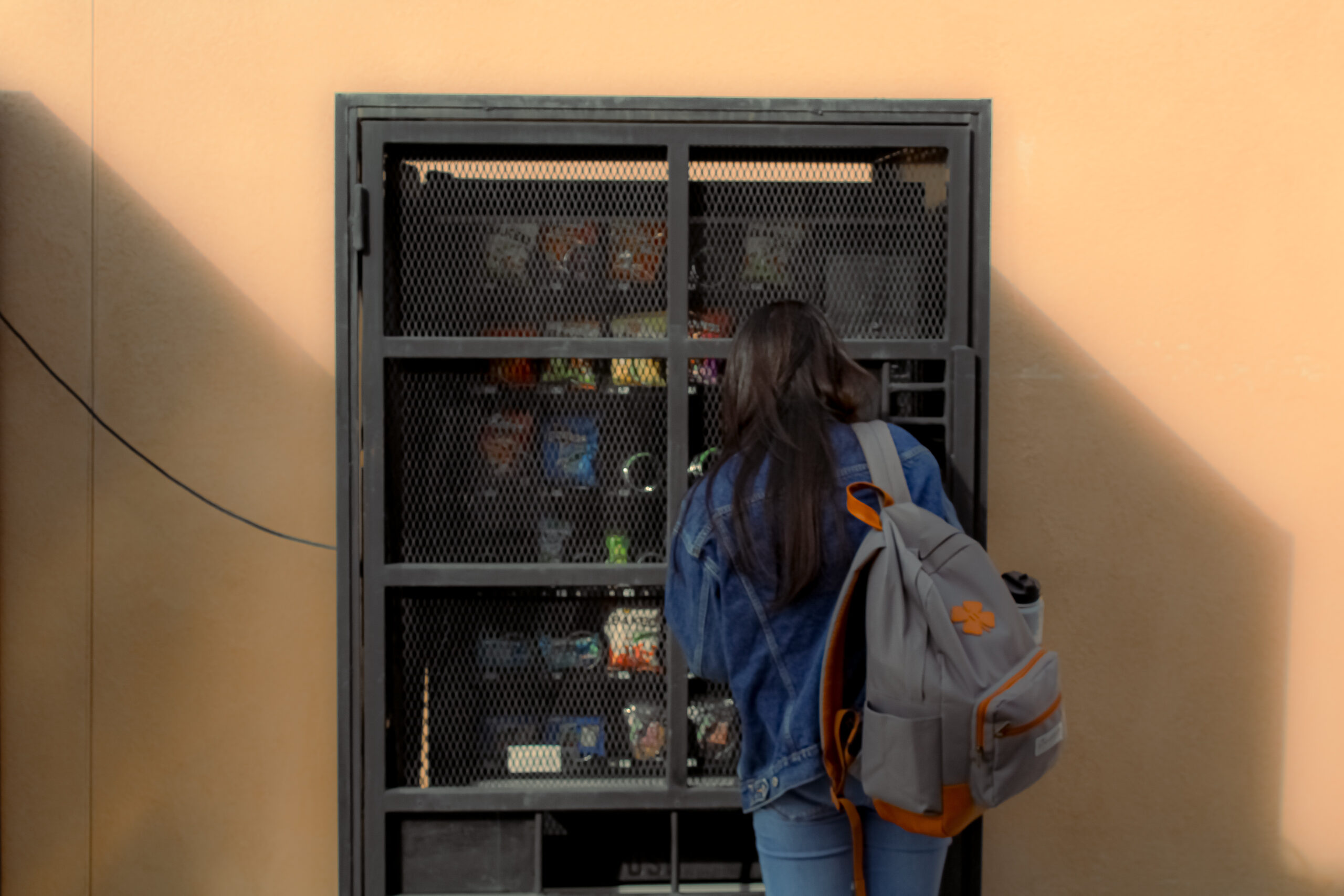
By Rebecca Do
In 1492, Columbus and his men landed in modern-day North America, where they terrorized and enslaved the Indigenous people occupying the land. Then, colonists began to form settlements, Native Americans off their land from Jamestown, Virginia to Plymouth, Massachusetts, and that’s not even all of it. Colonization has affected our history books longer than most can remember.
When the English colonists reached the Americas, we were taught that they and the Native Wampanoags befriended each other, then feasted upon turkey and other foods.
In 1970, on Thanksgiving, a group of Wampanoag peoples peacefully gathered on a hill that watched over Plymouth Rock, where the English settlers first arrived in the Americas on the Mayflower. Since then, the Native Americans of Massachusetts have declared Thanksgiving a “day of mourning.”
When one thinks of a typical Thanksgiving, they think of mashed potatoes, gravy, stuffing and a week off from school. Feasting and seeing family again after the summer has ended; all these positive things are what people correlate with Thanksgiving, a time to be thankful and loved.
When most Indigenous people think of Thanksgiving, they think of a time where their ancestors were taken advantage of and brutalized by settlers as their land was taken from them: a day of mourning and suffering.
Modern tradition has non-Native communities and families “celebrating” everything that they are grateful for in their lives. Tradition has completely stripped away the true history of what happened that fateful year in 1621 when the colonists celebrate their first Thanksgiving.
Should families cease to get together during this week-long break from school, and stop feasting together as a whole? Of course not, but it is important to acknowledge the Natives and the troubling history of this “celebration.”
Instead of celebrating Thanksgiving, mourn. Mourn for the Indigenous community who are still facing systemic oppression by the governments that should be theirs.
The United Nations Human Rights Council states, that despite making up just 5% of the world’s population, the Indigenous peoples of the world account for 15% of the world’s poorest people, discrimination leading most to be landless and malnourished.
In America, around 30% of Indigenous people stated that they’ve experienced a form of discrimination one way or another. The three leading instances include instances with the police, job promotions and hiring.
This Thanksgiving, listen to Native American speakers and to their community; know the difference between a savior complex and solidarity. This Thanksgiving, you can read books by Indigenous authors here and listen to songs by Indigenous artists here. Supporting Native American and Indigenous artists through their craft will help connect us to their roots and history; it’ll help us not forget their struggle and their tribulations in their countries.
On Nov. 21, the United American Indians of New England will gather near Plymouth again for the 52nd National Day of Mourning. Their message this year is “We Are Not Vanishing. We Are Not Conquered. We Are As Strong As Ever.”





